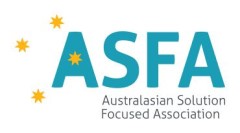Abstract
Graduate students experience heightened levels of stress, compromising their well-being and predisposing them to mental health disorders. Graduate students are over six times more likely to experience depression and anxiety than the general population. Despite the presence of counseling services on college and university campuses, graduate students are less likely to access these services and more prone to utilize alternative institutional supports (i.e., faculty advisors or peer counselors). This pilot study assessed the effectiveness of a six-week solution focused wellness (SFW) group intervention with a graduate program cohort using a pre-post, mixed-methods design. A total of twenty-seven (N = 27) participants were included in the study. Results demonstrated significant differences in well-being, mental health, and perceived wellness between baseline and six-weeks for both the cohort group (n = 9) and the general wellness group (n = 18). ANCOVA revealed significant between-group differences for well-being and perceived wellness indicating that the cohort group improved more across wellness-specific variables. Three primary themes emerged from the qualitative data including: awareness of wellness needs, peer support, and multidimensional wellness. The aggregated results support the effectiveness of a cohort approach to graduate student wellness group implementation.
Recommended Citation
Beauchemin, James; Krueger, Danya; Newman, Jennifer; and Beitelspacher, Paul
(2022)
"A Pilot Study of a Cohort-Based Solution-Focused Wellness Group for Graduate Students Using Solution-Focused Coaching,"
Journal of Solution Focused Practices: Vol. 6:
Iss.
1, Article 2.
Available at:
https://oasis.library.unlv.edu/journalsfp/vol6/iss1/2




